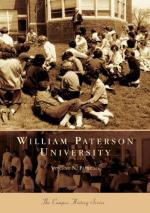|
This section contains 353 words (approx. 2 pages at 300 words per page) |
Encyclopedia of World Biography on William Paterson
William Paterson (1745-1806) was a leading advocate of the interests of the small states at the American Constitutional Convention of 1787. As a justice of the U.S. Supreme Court, he sought to strengthen the Federal government.
Brought by his parents from County Antrim, Ireland, to New Jersey at the age of 2, William Paterson grew up in Princeton, where his father kept a store. He entered the new College of New Jersey (Princeton University), receiving a bachelor of arts degree in 1763 and a master of arts in 1766. He earned a reputation as a classical scholar, orator, and village gallant. In 1764 he began studying law, was admitted to the bar in 1768, and for 8 years had a moderately successful country practice.
The American Revolution provided Paterson virtually full-time public employment. A member of various New Jersey Revolutionary conventions, he helped draft the state's first constitution in 1776. Briefly a state legislator and militia officer, Paterson spent most of the war as attorney general, attending sessions of criminal court all over the state. When he returned to private practice in 1783, he had become one of the half-dozen leading public figures in New Jersey.
Paterson's best-known public service came during the Constitutional Convention of 1787, where he upheld the right of the states to equal representation in the Federal legislature. He proposed many measures to strengthen the general government, including the power to lay and collect taxes, establishment of executive and judicial branches, and the making of acts and treaties "supreme law." But in heated debate in June 1787, Paterson eloquently and defiantly led the small states in resisting those who held that representation according to population was the only just basis. The result was the famous "Great Compromise," giving the states equality in the Senate.
Paterson served briefly in the U.S. Senate and was governor of New Jersey before George Washington appointed him to the U.S. Supreme Court in 1793. He was an able, energetic judge, upholding Federal power. He further displayed his legal learning in making a digest, Laws of the State of New Jersey (1800), and in devising rules for common law and chancery courts there.
|
This section contains 353 words (approx. 2 pages at 300 words per page) |


